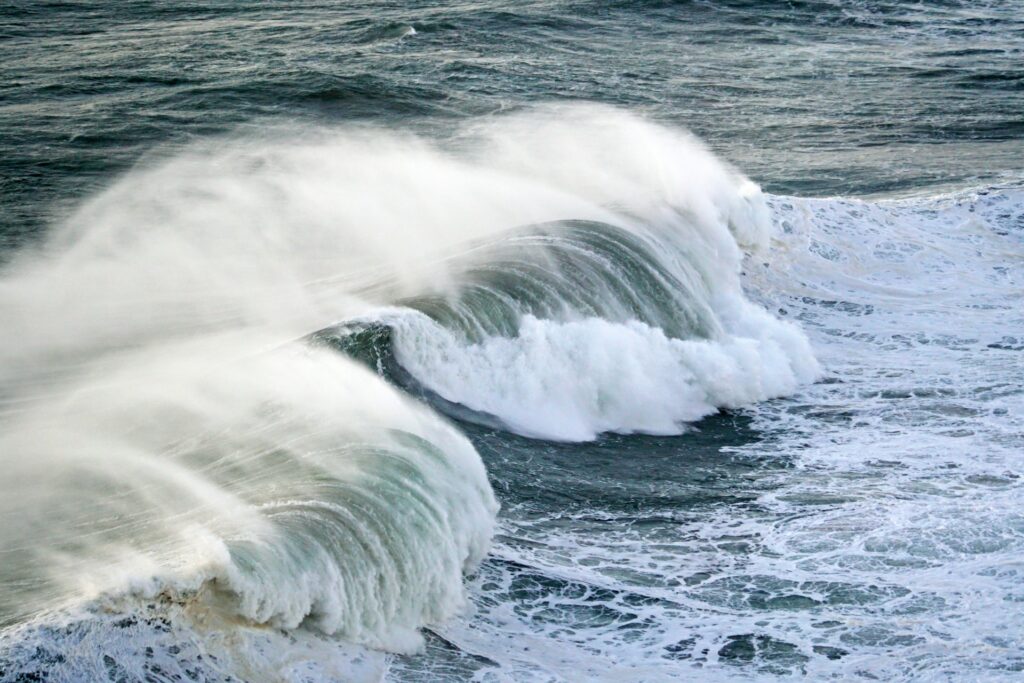
Anthropogenic climate change is impacting wave heights around the world, with waves in the Southern Ocean and Arctic Ocean growing the most, a new study in Geophysical Research Letters finds. Credit: Frederik Rosar/unsplash
AGU News
Register for Astrobiology Science Conference 2024. It’ll be out of this world!
Join us in Providence, Rhode Island from 5-10 May for #AbSciCon24, where the international astrobiology community will share new research investigating life’s potential, from Earth’s extreme environments and distant past to our Solar System’s icy moons and exoplanets. To register, email [email protected] with your credentials. [media advisory][press credentialing requirements][AbSciCon24 scientific program]
Celebrate the total solar eclipse with AGU
Join us before the eclipse on Monday, 8 April, for a TESS Pre-Eclipse Live Broadcast at 11 – 11:45 am CDT, featuring panelists Mike Liemohn, University of Michigan; Nicholeen Viall, NASA PUNCH Mission Scientist; and Fallon Konow, Georgia State University, University of Rome Sapienza. Don’t miss out on this stellar event streaming across our social media channels: Instagram, X (Twitter), Facebook, LinkedIn & YouTube. [watch the livestream here] [TESS website][scientific program][press site]
Featured Research
Waves are getting taller because of human-induced climate change
The world’s waves got a little bit taller on average from 1961 to 2020, a new study reveals. Waves in the Arctic and Southern Oceans saw the most growth, largely because the loss of sea-ice means more open water, which increases the distance wind has to build up waves. [Geophysical Research Letters research]
Gulf of Mexico dead zones are getting more acidic
The northern Gulf of Mexico experiences low oxygen zones, or “dead”
zones, that are ecologically and economically damaging. Now, the first
multi-decade study of pH reconstruction (1986-2019) finds that the summer dead zones also experience acidification driven by climate change; the acidification is projected to worsen over time. [Geophysical Research Letters research]
Data availability limits research on health impacts of wildfire smoke
Climate change is making wildfires more common and intense, and understanding health impacts from wildfire smoke is critical for public health. A new review of research on wildfire smoke exposures and health outcomes finds that while data on smoke exposure are widely available in real-time, data on health outcomes are delayed. This creates a barrier in robustly linking wildfire exposure to health outcomes at state and larger scales. [GeoHealth research]
Locusts drive people to cities, reduce agricultural output in eastern Africa
Locust swarms can quickly devastate crops, reducing food supply and increasing the cost of living. A new model examines how locust swarms can prompt people to abandon agriculture and move to urban areas, limiting food supply while increasing food demand in urban areas. [Earth’s Future research]
Wildfire smoke slows ponderosa pine photosynthesis
Wildfire smoke can impact photosynthesis by decreasing sunlight, but a new study reveals that as smoke interacts with ponderosa pine needles, it changes how the leaves physically take in and emit gases, slowing photosynthesis. [Geophysical Research Letters research]
Human activities threaten microbial life in cryptic subterranean estuaries
Subterranean estuaries are where terrestrial groundwater and seawater mix. These underground environments have been studied relatively little, and now, a new study profiles the microbes living in these unique environments and uses lab experiments to explore how human activities could alter the microbes’ demographics, with consequences for water quality. [JGR Biogeosciences research][Eos editor’s highlight]